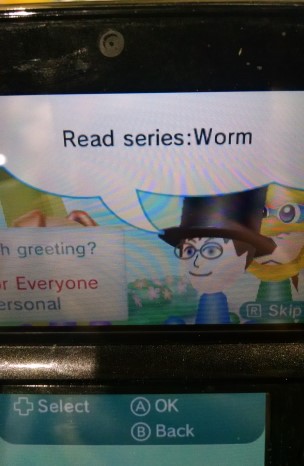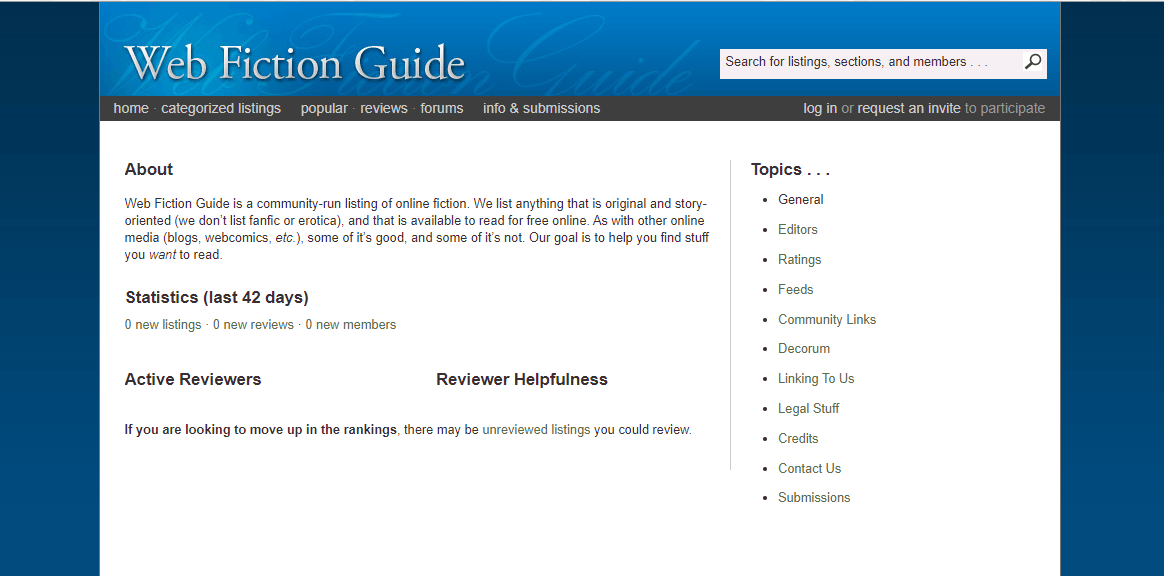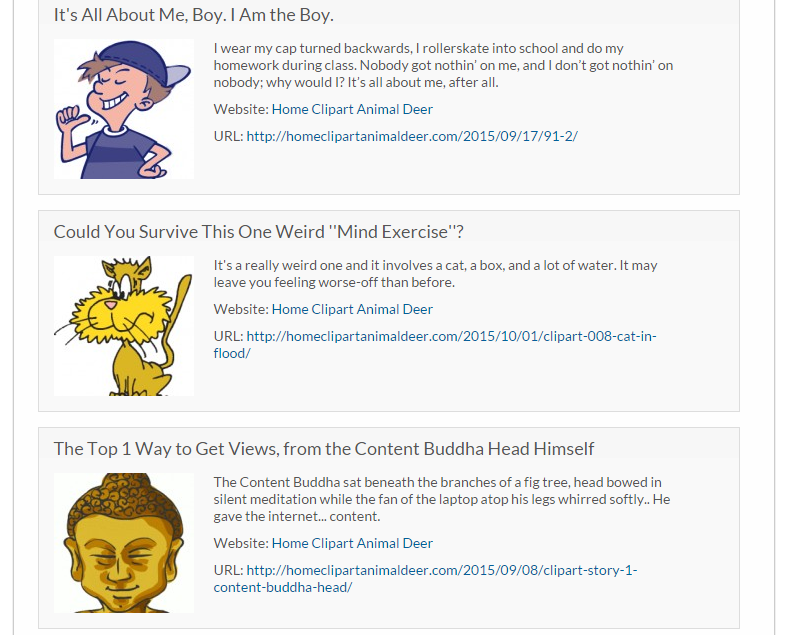Time for my post about the web fiction community.
I’ve been writing web fiction since the time I joined my first internet forum (Nintendo City.com) at the end of 2005. In some form or another, whether that be sprite comics, fan fiction, short stories, video game reviews, ironic audio dramas, web serials, I’ve been writing for fifteen years and almost all of that was on the internet (sadly you can still find most of it, too).
For all of that, then, it is interesting to me that the first time I really found a community around writing web fiction was only in 2019. And it is interesting to me that that community is both dying and thriving at the same time.
The entire web fiction medium is extremely interesting because of the way it has developed over the years. Obviously, there has been web fiction as long as there has been an internet. There were shared universes like Legion of Net.Heroes created before the World Wide Web even existed, fan fiction dominated teenage fandom circles from the onset of sites like Live Journal, and things like forum adventures or “quests” were popular no matter where you went. But it was not until the 10s when the medium really took off in any meaningful way.
The Origin of the Web Fiction Community
Web Fiction Guide was started in 2009, a site that hosted listings for relevant, original web stories across the entire internet, much like IMDB or any other media database. Only, with web fiction, the ease of creation and the tendency for users to abandon their stories almost immediately forced this site to be selective, to list stories only on approval and after long wait lists. Even with that, though, a community was born. Web authors came together, found each other’s stories, and mutually saw an increase of readership as people were able to find other stories that interested them.
It was niche and somewhat insular, but the listings from that time showcased a large variety of genres and styles. It wasn’t just authors posting their work that had been rejected by agents and publishers—it was people sharing their creations with each other, something of a collaboration between author and audience as a serial progressed through itself.
Web Fiction Guide’s most popular feature, and still a valuable resource today, is a linked website known as Top Web Fiction; people can vote on the stories they like to support them, once per week, and the stories with the highest vote counts would end up on the front page for all to see. Until recently (more on that later), Top Web Fiction was instrumental in giving readers a chance to see your story and show off just how big a story’s readership really was.
In the early 10s, web fiction still laid dormant. It was a different story altogether in web comics, where comics like Diesel Sweeties got syndicated in the newspapers and Axe Cop got a cartoon and 8-Bit Theater could launch an Eisner Award-winning career. It had no comparison to flash animation and games, where Happy Tree Friends became a huge hit and Alien Hominid/Castle Crashers developers The Behemoth proved themselves. Web fiction did not carry itself to any level of success where an author could support themselves or make a living, nothing even resembling that.
That is, until the one-two punch in 2011.
The Rise of the Planet of the Web Fiction
First, Andy Weir, unable to find a publisher for his new sci-fi adventure book, turned to web fiction to serialize his story for free. That book, The Martian, proved to be a phenomenal success, was picked up by a publisher for an ebook and print version, and then was of course made into a major motion picture in 2015. However, its past as a web novel is not well-known and it can no longer be read in that format, so this is often overlooked.
Second, and much more important for the community, was Worm. If you’re reading this, you likely already know about Worm, but I’ll briefly summarize the story and its successes: It was the first Really Big web serial released on the internet, a darker and more complex superhero world with moral ambiguity and extremely interesting uses of powers. Because it released right around the time of Avengers and The Dark Knight Rises, it rode a wave of interest from mass pop culture and, thanks to frequent and consistent updates for over a year, became a huge success, one big enough to fully support its author.
The level of popularity for Worm was immense beyond anything seen before in English-language web fiction. The author, Wildbow, allegedly turned down TV and film deals, and still has not even published the novel in a sellable format, meaning that even after nearly a decade it remains accessible solely through the power of some random Blogspot site. And yet it’s still read and discovered daily by new readers.

Worm exploded. And web fiction authors entered the fray by the hundreds. Superhero web serials became a huge deal in the web fiction community, to the point that Web Fiction Guide was so swamped by superheroics that it seemed like that was the only genre that could ever succeed anymore. Traditional sci-fi faded, and the contemporary romance or young adult stories disappeared outright. The “old guard,” as they were, stopped writing much if at all, and were replaced by a new set of authors who were actually making money off their work, and gaining quite a lot of popularity along with it. Wildbow and his mega-sized serials, of course, but also Drew Hayes with Super Powereds, Alexander Wales with Worth the Candle and other rationalist stories, and Pirateaba with the phenomenally successful The Wandering Inn series.
The feeling that, with merely a word processor, a WordPress blog, and your own mind, you could become a popular author, entered the minds of countless writers like a mouse squeezing its way into a crack in the wall.
So many web serials started in this time.
And so many web serials disappeared just as quickly, because obviously only a select few could ever succeed in a market based around free work.
The Death of the Web Fiction Community
That’s what happened to the “second wave” of Web Fiction Guide. The old authors wrote for each other and for their tiny community. These authors came in, excited by the booming successes around them, and seeing an influx of new readers looking for stories like the ones they loved. The only problem was that web fiction does not make money except for the absolute top, and it takes a year, even more, just to see an ounce of readership.
So that “second wave” died down and by the end of the decade, Web Fiction Guide is looking like a ghost town.

The community well dried up. The successful authors are too popular to be active on a site like this, or they “graduated” from web fiction to move onto self-published ebooks, to actual publishing deals. The unsuccessful authors moved away as well, frustrated with the lack of readership, something that plagues web fiction on a deep level. There’s guides on how to run serialized web stories, how to reach new readers, but no amount of guide will help you overcome that feeling of annoyance and even loneliness in those first weeks, those first months publishing a story and feeling like it is going out to an empty void.
I felt this way when my friend and I started our first web fiction website in 2015, Home Clipart Animal Deer. We posted short stories, political satire, experimental nonsense, and even an unfinished serial or two, all jumbled together on a site with notably shoddy design on every level. It was great. But for all the stories we posted and all the cheapo Project Wonderful advertising we did, we never got any regular commenters. Hardly any commenters at all, actually.

Nobody cared about any of it, outside some of the more controversial political satire stories that were posted to the right corners at the right moments. It was a really fun time making the website, even though I went way overboard trying to fit tons of content in and real life pressures killed it after less than a year.
But I feel deeply for the people who saw the promise that web fiction had to offer—a Wild West where stories ignored by mainstream publishers could thrive, where stories from marginalized authors could shine and brand new web-only formats could change things up—but ended up with nothing to show for it.
The internet is a tough place for content. There’s so much of it, and discoverability is low. It’s a Wild West all right, but more like the Mojave Desert. Even these 2010s Retrospectives blog articles of mine rarely get more than a few dozen views. Even with an aggregated, centralized community like Web Fiction Guide, it was going to be hard to improve things, and it turned out that Web Fiction Guide was not up to snuff.
Being a free website hosting free works, Web Fiction Guide was always a tenuous situation that relied on volunteers and enthusiasm to thrive. The site grew into the early 2010s, especially after Worm burst onto the scene, but the site never changed itself; to this day it still looks just like it did in 2009, with the same weird glitches (my library page and what shows up on there is still a mystery to me). The site was a community for authors, but notably not for readers; when the old guard and second wave of authors were both gone, so went the entire place.
The site editors, the ones who approve listings or do early reviews of stories or keep up with the servers, are mostly gone, so the site hasn’t received a new listing since September 2019. Being unpaid volunteers (or even having to spend their own money to keep up the servers), I cannot fault them at all. From what I know, very few of these editors still write or even read web fiction anyway, so keeping up a site out of a sense of duty alone is not worth the trouble. But that detachment has really begun to destroy the community.
The Web Fiction Guide site is practically dead, and so are its forums. Even Top Web Fiction, increasing in popularity for years up until 2019, has now begun to decline as well, with the most popular stories garnering just half the votes they did around a year ago.
The community is quite literally dying by the month.
When I first entered the Web Fiction Guide community shortly after ATL: Stories from the Retrofuture was added, I realized I had finally found what I was looking for for so many years—a place for like-minded creatives all pushing for the same thing and making it work as best as they can. In some other creative communities I have been in, there is a tendency for folk to wallow in their frustrations and accomplish nothing. Not here. The authors I have met in the past year are wonderful people, all passionate about their stories and interested in helping each other succeed.
Except even they are facing down the death of the web fiction community. The community I entered was beginning to crumble from before I even knew it existed.
Why is this happening? Is the outdated Web Fiction Guide site really to blame? Was web fiction merely a passing fad? Is there some marketing element that authors except for the biggest simply haven’t noticed yet?
Well…
No. None of that is true.
In fact, while the Web Fiction Guide community is dying, that doesn’t mean anything for web fiction as a medium.
No, web fiction is growing faster than ever, quickly becoming one of the most popular new mediums of content on the English-language internet sphere. Maybe I forgot to mention that?
Actually, Web Fiction is Growing… Quickly


You see, there are two major, huge web fiction sites right now that take up the vast majority of all web fiction content consumed these days. While in the past there were sites like Dream Width, Fictionpress, Livejournal, etc. to host stories on, it didn’t come until the 2010s that any of these sites would truly break out.
Then Wattpad got massive and everything changed.
You see, Wattpad is a horrible, broken website with a garbage recommendation algorithm, confusing list/library features, a toxic and dismissive community for writers, and constant caching errors that make reading stats and even entire chapters missable. But it has one huge plus that beats everything else—it’s got an app, and that app gives out millions of free stories to anyone who downloads it.
Wattpad became THE web fiction site for the bulk of internet users. It has a very bad reputation for “that site with all the unfinished werewolf stories written by 14 year olds,” but the top stories on Wattpad routinely receive million, even tens of millions of views. The story After was made into a feature film that made $70 million across the globe; The Kissing Booth was a smash-hit Netflix movie; and there’s plenty more success where that came from. No other English-language web fiction site has gotten actual Hollywood deals out of it. Sure, Wattpad is a barely functional site, but it’s growing into an entire enterprise.
On the other side, East Asian web fiction absolutely exploded in the 2010s thanks to fantasy-fighting stories that were made into hit anime series. Sword Art Online was a web serial first, if you didn’t know! The success of those stories when translated into English, and the fandoms surrounding those, have led to another huge market—the Fantasy Action Web Novel side of things.
The biggest site for those is Royal Road, where I myself actively publish stories. The community is… aggressive, sometimes, but readership is huge, even without an app. My stories routinely receive double, even triple the views on Royal Road than they do on the main site, no matter how much my marketing directs readers to the main site instead. It’s crazy!
There are plenty of other sites in this vein, notably Web Novels.com, run by a Chinese book publisher, but Royal Road is still the biggest, and Royal Road is the one that’s actually led to people making lots and lots of money.
One thing that is around now that wasn’t when Web Fiction Guide launched? Patreon accounts. And it turns out that Patreon is an excellent way for web fiction authors to make money off their content, either by providing bonus material, advance chapters, or even entire stories locked behind a subscription paywall. There are no concrete numbers on this, but thanks to Royal Road, there appear to be something like a hundred web fiction authors who make over $1,000 USD per month on Patreon. I don’t even know how many are able to make at least the high hundreds of dollars thanks to reader support, but it’s obviously much higher.
Crowdfunding has given a completely new life to the publishing industry in general, where readers can support their favorite writers or series and get extra rewards in return, where companies can release very small print runs of niche products and make a good chunk of cash off it like they never could have in the age of Borders and Barnes & Noble.
With Wattpad on one side scoring some of the biggest successes in teen fiction and romance novels of the decade, and Royal Road (et al.) generating some of the biggest and most popular fantasy stories of the decade, one thing still remains true—these writers are still mostly hobbyists, still fans of their own communities who actively engage with each other and with their readership. The barriers between creator and reader are still blurred, just like they were a decade ago.
But with all this success, what the hell has happened to Web Fiction Guide?

Decentralization, that’s what.
Web fiction was always inherently fragmented, with most authors posting on their own free blogs, but it was anchored around Web Fiction Guide. It was anchored around the collective of authors in their niche community that all knew each other and helped each other out.
That is still the same, but it’s now in multiple different circles across several different websites. As the internet continues its Wild West attitude, web fiction as a medium is diverging into completely disparate communities that seem very unknowledgeable of each other.
There’s actually so many web fiction sites now that I pretty recently assembled a pretty massive list of as many sites as I could find, the vast majority of them in the East Asian Web Novel vein but overall they cover nearly every nerdy niche you can imagine.
Having spent considerable time on many of these sites and their forums or chatrooms, I got the feeling that they simply don’t really know what kinds of stories exist beyond the sites they already frequent. Wattpad readers and writers seem especially unaware that Wattpad is not the only site available to them, and because of Wattpad’s oppressively horrible algorithms causing organic story discovery to be next to zero, many authors quit writing altogether after their 20-chapter story gets 80 views. Social media for web fiction writers is also incredibly hit-or-miss, with little discussion available and self-promotion the name of the game there.
The medium is so huge with so much possibility, though. Web Fiction Guide could be what unites all these scattered corners and gives a hub for readers and writers over the entire internet. Instead, it’s been dying a slow death over the past several years.
Is it simply because the site is so outdated? Surely that could be fixed with a good-sized Indiegogo campaign and a few months of work, like TVTropes once did many years ago. Is it because the site had more writers than readers? Well, probably not, because Top Web Fiction was and remains a valuable resource for readers, and that links directly to Web Fiction Guide.
I think the entire problem plaguing the entire web fiction community right now, more than fragmentation, more than site issues (though those are both big), is two issues I will call: Turnover & Mire.
The Mire & the Turnover Problem
My idea for this entire article came on August 30th, 2019, when the web fiction community was blown a new one by the sudden cancellation of not one, but two of the most popular ongoing stories at the time.
The first was Not All Heroes, whose author Rhodeworks wrote a long and detailed blog post about his reasons for quitting. Then, hours later, Inheritors was dropped as well, its author Megajoule citing extremely similar reasons.
That event rubbed me the wrong way for a little while. They clearly coordinated it together to make the biggest impact, that these two stories, both among the last of the popular post-Worm superhero serials, would be canceled suddenly mid-story, with no ending or conclusion for its readers. Despite not having read either of them, I felt a little upset.
And I didn’t quite know why. I mean, both of them had very good reasons for quitting; writing these long, seemingly unending stories became like a burden for them, growing more popular and making readers happy, but inhibiting their ability to tell the stories they wanted to tell. It was good for their mental health to quit… but why did that become necessary in the first place?
This is what I call the Mire—the ultimate problem with web serials that grow popular. Patreon money flows in, Top Web Fiction gets you voted to the top, and now there’s a huge amount of pressure for you to keep going, to write exclusively what pleases audiences so they will continue to support you. Stories like The Wandering Inn, Ward (the sequel to Worm), A Practical Guide to Evil, Mother of Learning… all of these are phenomenally successful, but these authors work for years upon years on these things. Sure, they’re making money, but are they really doing what they want? In some cases, sure, but I can’t imagine they are generally that happy with it.
The problem with web serials is that they are serial in nature, and that can lead to filler, bloat, and endless ramping up of stakes. Poor storytelling, unedited drafts, growing disinterest, and eventually an unceremonious conclusion far after the point it needed to end. Serial authors can get mired in the swamp of writing a single story and keeping a readership, and this can be a fairly depressing experience.
Wildbow himself, the most popular web fiction author out there, experienced problems when his successor stories to Worm, Pact and Twig, were nowhere near as popular as his first story, despite similar lengths and scopes. He learned his lesson, and when he started another superhero tale with Ward, he has kept it going far longer than any of the past three, with no end in sight.
The Mire is what killed Rhodeworks and Megajoule’s interest in writing, and it’s something that has scared me ever since. Their dropout is seriously the main reason why I have taken a longer break for ATL: Stories from the Retrofuture Season 2 than I originally planned; I’m terrified that I will also fall into the Mire and so I want to hone this second season as much as I can so that it can be something I’m proud of.
But I completely understood the feeling of trudging emotionlessly through a serial, and I was happy for them to move onto projects they cared about in favor of working forever on stories that no longer moved them.
“I don’t consider it a failure as much as a re-calibration. An awareness that you want to play baseball when everyone’s just fine with softball, and there’s no real setup to foster something beyond that. It certainly won’t be WebFictionGuide. These pigs play softball, and that’s okay. But you’re a stupid farmer if you want to pitch a baseball with them.”
From Rhodeworks
This paints a very vivid picture of what the Mire can feel like. Writing for the sake of the readership and never for anything deeper than that.
So then, what had made me feel so upset about the two cancellations back then?
It took me a while to pinpoint the reason, to reflect on web fiction as a whole, and why I care about the medium. And upon rereading these two posts several times, I finally came across the answer in the form of these two passages:
“See, you don’t feed pearls to pigs—you sell them. This means I’ll be leaving Not All Heroes up. That is, until I have the first two books edited and ready, which I’m hoping to have done by the middle of 2020 (I’ve already got a wonderful cover artist lined up.)”
From Rhodeworks
And from Megajoule:
“I’ve begun work on what I hope will be a manuscript version of Inheritors (name pending) that I can shop to agents and get published. Someday, Gabe will tell his story again.”
From Megajoule
What upset me wasn’t that they were quitting their stories, or that they were going to revise their stories and turn them into books to sell online. That’s all perfectly fine, and even advisable.
I guess what upset me was that the entire event seemed to imply that web fiction, the entire medium of it, was a zone for amateurs and hobbyists, a stepping stone to greater pastures and nothing more.
And this sentiment is an extremely common occurrence–the web fiction community faces the Turnover Problem to a great degree.
Because it’s free work published usually without an expectation of profit, and because it’s indie to the highest level, people don’t stay in web fiction for very long. They write web serials, hope to gain a readership, then if they fail, they quit. If they succeed, they move to Amazon for self-publishing, the real moneymaker when it comes to being an indie author. Thus creates a cycle of Turnover where the entire community disappears every four or five years.
The old guard that founded Web Fiction Guide has all but disappeared. The second wave has, as well. Writers on Wattpad can see huge popularity (but only if the site itself picks you up), and Royal Road is a path to great success, but those successes are an easy way to get trapped in the Mire of ceaseless serials.
It’s a cycle that has largely decimated Web Fiction Guide in the span of just one decade, where the authors actively writing now are simply not the ones who were a decade ago. It’s the Grandfather’s Axe paradox, but with a community of writers.
The reason these posts upset me is because they made this problem so clear, and, honestly, they’re largely right.

Web fiction is so easily accessible that it is indeed a stepping stone for most younger, less experienced authors. The paths to financial success are few, and fostering a loyal readership can be tough.
With all of that, and with Web Fiction Guide seemingly fading into the ether, it really does feel like the entire medium is dying… even as it reaches new heights of popularity never before dreamed by those writing just a decade ago.
Why does web fiction feel this way, when webcomics and web animation and indie games all feel so much more lively and exciting? What needs to happen to change this?
A Fairly Modest Proposal
It’s probably considered hackneyed to end a post like this with a Call to Action of sorts, but I do have some Dream Concepts for how web fiction could expand, could really make an impact in the larger entertainment industry:
Firstly, modernizing Web Fiction Guide and turning it into a centralized hub for the entire medium would be an absolute boon. Not just a site that lists various web fictions, but a place for authors AND readers to thrive.
It’s one thing to have a site that lists stories, shows reviews, has tags, and lets you vote on them. It’s another thing to have a site that feels like it’s actually alive, with editorials, news posts, featured stories, interviews, and the like. Increase story discoverability and community feelings by actually showing off the incredible breadth of content that already exists.
Webcomics have had these sorts of sites for decades, and it’s about time web fiction had the same. If not Web Fiction Guide, and it may not be since those who created and hosted that site have mostly exited the community, there should at least be somewhere, something.
Secondly, there’s obviously a massive contingent of web fiction readers that enjoy extremely specific niches—many readers adore the longrunning fantasy/sci-fi epics, while Wattpad teens love romance and sexy supernatural hunks, and Royal Road teens are into wish-fulfillment fighting stories. But that doesn’t mean that web fiction is some sort of monolithic hivemind. There is a diverse readership, and web fiction should expand that further!
Nintendo used to talk about the Blue Market strategy when it came to selling games; they believed that, rather than marketing your product to those already invested in the industry, that expanding your net to the uninitiated, the casual-interest consumers would be the best way to gain revenue and net some permanent new customers. That worked spectacularly with the Wii and DS, and honestly is the best path forward for web fiction as well.

If authors are sick of writing the same fantasy/sci-fi, superhero, teen romance, and anime-inspired stories for the same audiences, then we need to get more people into web fiction. Million-word serials obviously aren’t going to appeal beyond a certain point, even if your story is Worm.
How about high-quality, movie-length miniseries to draw in more casual readers? How about writing character-focused contemporary dramas and comedies? How about going back to serial storytelling’s pulpy roots and giving us the kinds of exciting, edgy stories that traditional publishers are still reluctant to accept?
Giving marginalized communities a voice through storytelling should be a primary function of web fiction, and so far it hasn’t really been one. When I started Hands Held in the Snow, the story received an instant positive reaction, but I found that, soon, I had run into almost the entire roster of LGBT web fiction authors in a matter of months. Since then, though, the LGBTQ+ Web Serials Twitter account has started and has been phenomenally useful in promoting web fiction to those who may not yet be readers. That’s the kind of engagement a thriving web fiction community needs!
And thirdly, and maybe most importantly, web fiction needs to be bolder as a medium. This is fiction on the internet, after all! Web fiction authors tend to shun the prospect of anything that is not purely prose, and that needs to change because there is such an array of content out there waiting for us.
One of my favorite web fiction stories is a novella called Advent that uses hypertext fiction to tell a very sad story. I also was in love for many years with Homestuck, a web comic with frequent cross-genre aspects whose standaloneish Epilogue even ended up being pure prose.
Things like forum adventure “quests,” chooseable-path-adventure Twine games, browser-playable visual novels and such on itch.io, hybrid comic-prose experiences, chat stories, and other sorts of narrative web-based fiction deserve to be a part of this community. Why limit things to some narrow specification when, more likely than not, readers aren’t even considering limiting themselves?
Web fiction has so much more to offer than print books thanks to being, well, on the internet. Let’s take advantage of that!
Conclusion
This was a whole lot longer than I meant it to be. All I really wanted to say was that I love web fiction, and the web fiction community as a whole. I’m all-in on making sure this medium becomes as great as it deserves to be. There will always be hobbyists and teenagers writing stories that are abandoned after 6 chapters, but that’s just the face of how accessible the internet is. We should celebrate the ease of access, embrace the terrible cancelled stories, accept the huge popularity of niche stories stuck in the Mire.
Right now, it feels like the web fiction community is dying, even though it’s growing more than ever before. The reasons for that are clear, but what is less clear is what will happen to get out of this rut. Someday, this entire post will seem like a massive joke because web fiction will be unfathomably big compared to where it is now. But for now, it really feels like these are pressing issues that must be solved. So let’s solve them together.
I leave this post on one final note: ATL Season 2 probably isn’t coming until like May or something lol sorry y’all



That was a very good article.
Thank you!
My thoughts on the web fiction community have certainly changed in the last year, especially as the landscape has dramatically shifted in the face of COVID-19 and increasing consolidation in media. I might write a follow-up to this in a few months, because I feel like it deserves one. I’ll edit this post with a link if I ever do, of course.